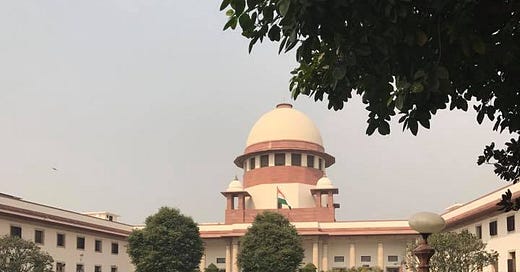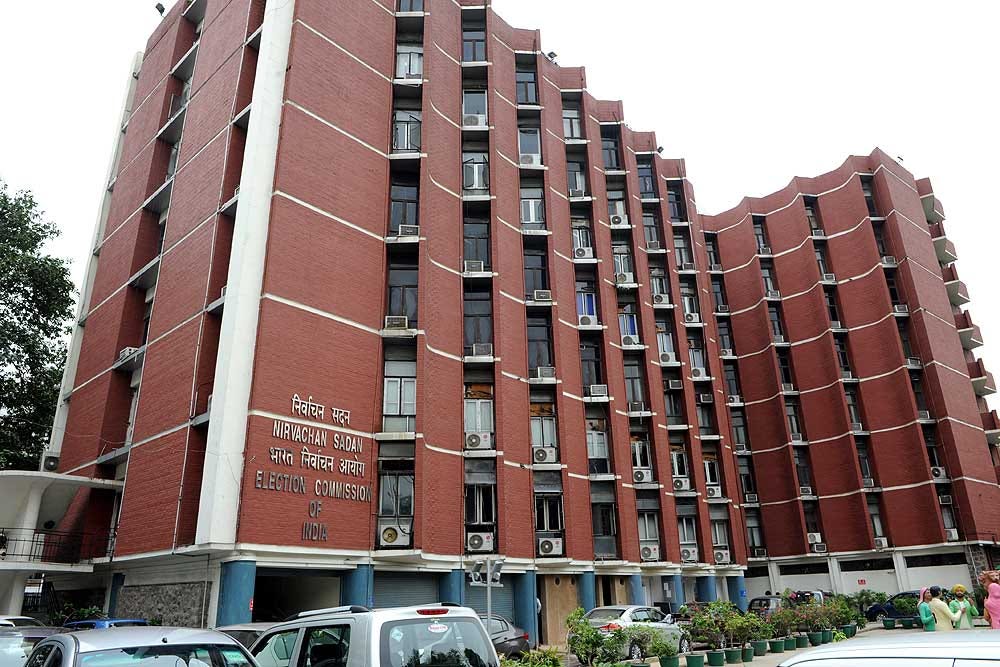Supreme Court Rejects 100% VVPAT Verification, Upholds EVM Voting System
Directions were, however, issued by the Apex Court to the Election Commission to put in place additional safeguards.
Apex Court Rejects Petitions Seeking Complete Verification
The Supreme Court of India today dismissed a bunch of petitions calling for 100% verification of Electronic Voting Machine (EVM) votes with Voter Verifiable Paper Audit Trails (VVPATs), affirming the existing EVM-VVPAT system for elections. This ruling reinforces the reliability of the current system, which is central to the democratic process, amidst growing speculation and conspiracy theories about the integrity of India's elections. However, the Apex Court has directed the Election Commission to implement additional safeguards, within the existing operating procedure.
Supreme Court Decision Amid Lok Sabha Elections
The decision, delivered by a Bench comprising Justices Sanjiv Khanna and Dipankar Datta, comes at a crucial time when the ongoing Lok Sabha elections are in full swing. The Apex Court's ruling holds significant implications for the current electoral process and may positively impact public perceptions of the EVM system's reliability.
Court Supports EVM-VVPAT System, Dismisses Ballot Paper Proposal
In its ruling, the Court emphasised its confidence in the current EVM-VVPAT system, rejecting the proposal to revert to the traditional ballot paper method. The Bench asserted that doubts based on conspiracy theories were insufficient to challenge the existing system, highlighting the importance of maintaining a culture of trust in the electoral process.
Directions by the Apex Court to the Election Commission
While the petitions were no doubt rejected, the Supreme Court of India did issue specific directions to the Election Commission regarding the Electronic Voting Machine (EVM) and Voter Verifiable Paper Audit Trail (VVPAT) system. Here are the key directions provided by the Court:
Sealing of Symbol Loading Units (SLUs): The Court directed that after the symbols are loaded into an EVM, the Symbol Loading Unit (SLU) should be sealed and secured in containers. Candidates and their representatives are required to sign the seal. These sealed containers containing the SLUs must be kept in storerooms along with the EVMs for at least 45 days after the declaration of results.
Verification of Burnt Memory in EVMs: The Court mandated that the burnt memory semi-controller in 5% of the EVMs, including the Control Unit, Ballot Unit, and VVPAT per assembly constituency per parliamentary constituency, should be checked and verified by a team of engineers from the manufacturers of the EVM after the announcement of results. Candidates numbered 2 and 3 can request this verification within 7 days of the declaration of results. The expenses for this verification will be borne by the candidate making the request, and if any tampering is found, the expenses will be refunded.
These directions aim to enhance the transparency and integrity of the electoral process by ensuring additional safeguards and verifications in the EVM-VVPAT system.
Election Commission's Stance Upheld; Opposition Faces Setback
The Supreme Court's ruling aligns with the Election Commission's stance on the matter, which involves verification of VVPAT slips in five randomly selected polling stations per Assembly constituency. The Opposition, which has been pushing for a complete cross-check of VVPAT slips against EVM votes, views the decision as a setback.
Finality to Unfounded Conspiracy Theories
In summary, the Supreme Court's rejection of the petitions seeking 100% verification of EVM votes with VVPATs dispels any uncertainties surrounding the conduct of the ongoing Lok Sabha elections. This decision should effectively silence those perpetuating conspiracy theories about EVM hacking and rigging, providing a clear path forward for India's electoral process. The game is back to the basics— canvassing and convincing the electors to vote in one’s favour.






